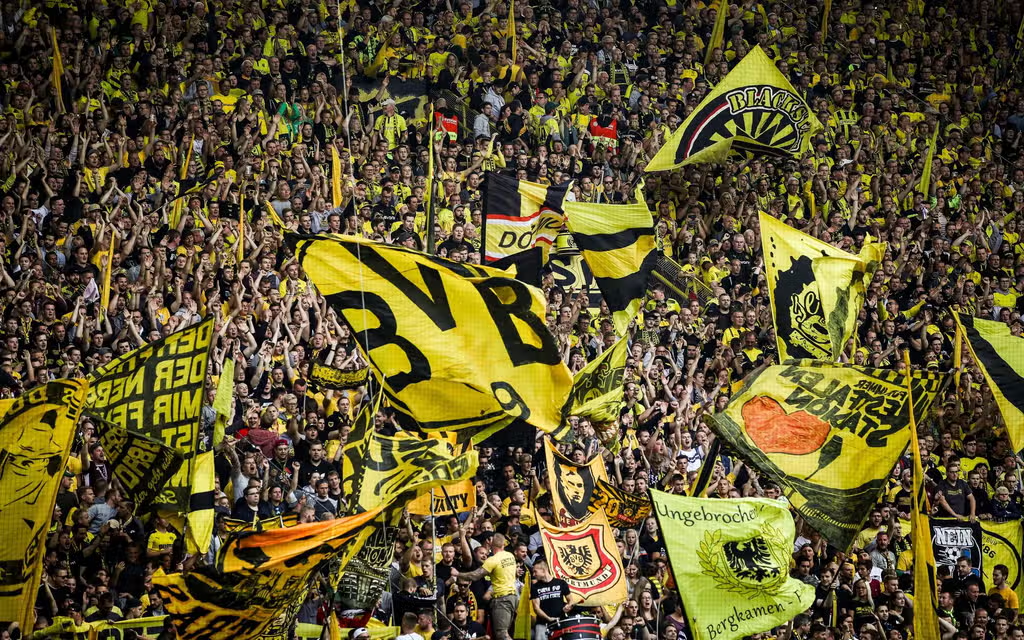
TOPSHOT-FBL-EUR-C1-MILAN-DORTMUND / MARCO BERTORELLO/GettyImages
The history of Borussia Dortmund started when a group of eighteen young men from Dortmund founded it on December 19, 1909. They established the club out of a passion for football and a desire to create a team that could compete at a high level. The name ‘Borussia’ derives from the Latin name for Prussia, reflecting the region’s historical significance.
Rise to Prominence
In the early years, Borussia Dortmund struggled to make a significant impact on the German football scene. However, the club’s fortunes began to change in the 1950s. In 1956, BVB won their first German football championship, a feat they repeated in 1957. These victories marked the beginning of Dortmund’s rise to prominence in German football.
Bundesliga Era
The Bundesliga, Germany’s premier football league, was established in 1963, and Borussia Dortmund was one of the original teams invited to participate. The club quickly made its mark by winning the DFB-Pokal (German Cup) in 1965 and the European Cup Winners’ Cup in 1966, becoming the first German team to win a European competition.
Challenges and Rebuilding
The 1970s and 1980s were challenging decades for Borussia Dortmund. The club faced financial difficulties and even suffered relegation from the Bundesliga in 1972. However, BVB managed to return to the top flight and began a period of rebuilding. The 1989 DFB-Pokal victory was a significant milestone, signaling the club’s resurgence.
The Golden Era
The 1990s are often considered the golden era of Borussia Dortmund. Under the management of Ottmar Hitzfeld, BVB won back-to-back Bundesliga titles in 1995 and 1996. The pinnacle of this period came in 1997 when Dortmund won the UEFA Champions League, defeating Juventus 3-1 in the final. This victory was followed by winning the Intercontinental Cup later that year.

Financial Troubles and Recovery
The early 2000s saw Borussia Dortmund facing severe financial troubles, which almost led to the club’s bankruptcy. However, through prudent management and the support of their passionate fan base, BVB managed to stabilize their finances and return to competitiveness.
Recent Success
The appointment of Jürgen Klopp as head coach in 2008 marked the beginning of a new successful era for Borussia Dortmund. Klopp’s dynamic and high-pressing style of play led BVB to win the Bundesliga titles in 2011 and 2012. The club also reached the UEFA Champions League final in 2013, although Bayern Munich narrowly defeated them.
Current Status
Today, Borussia Dortmund is one of the most successful and popular football clubs in Germany and Europe. With a large and dedicated fan base, known for creating an electrifying atmosphere at their home ground, Signal Iduna Park, BVB continues to compete at the highest levels of both domestic and international football.
Conclusion
From its humble beginnings in 1909 to becoming a powerhouse in German and European football, The history of Borussia Dortmund is a result of determination, passion, and the loyal support of its fans. The club’s journey through triumphs and challenges has solidified its place as a beloved institution in the world of football.
For more articles like this click here.







